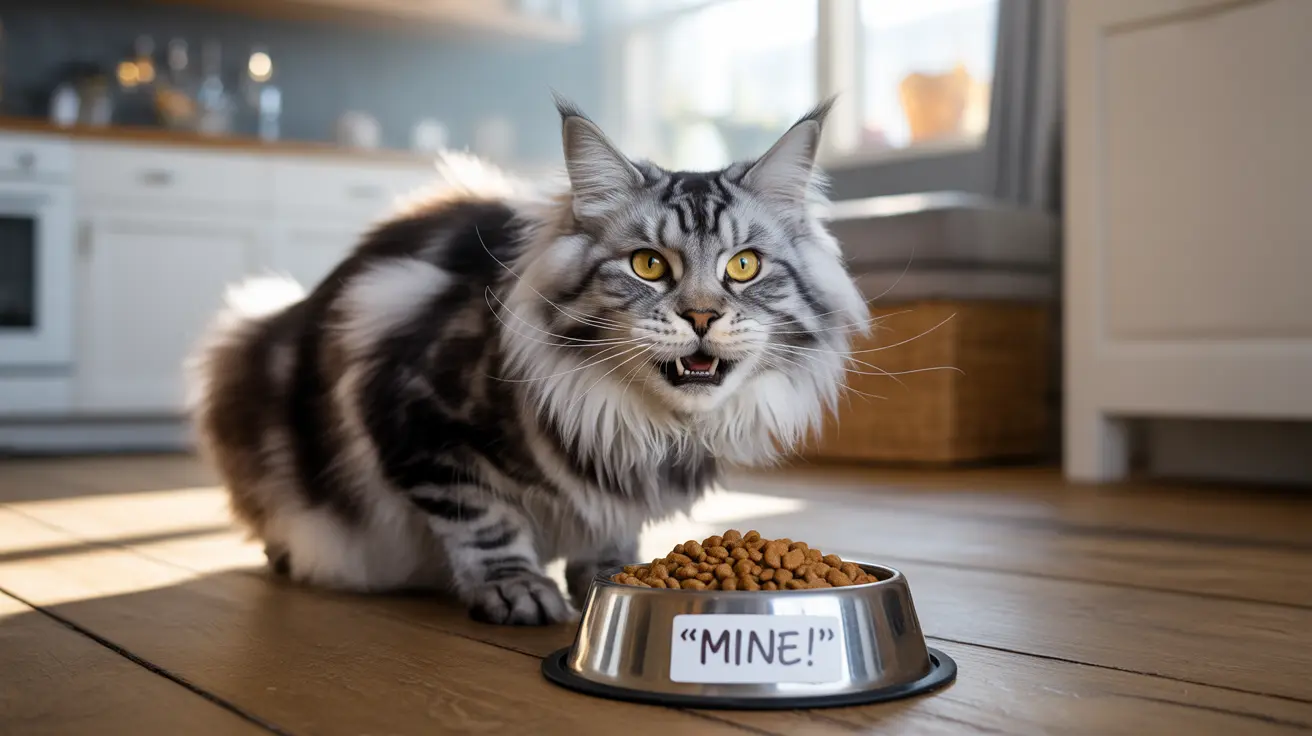Recognizing Food Aggression in Cats
Food aggression manifests through various behaviors beyond just growling. Your cat might hiss, swat, or even charge at other pets or humans who approach their food bowl. Some cats may hover protectively over their food, eat unusually quickly, or become visibly anxious during mealtimes. Understanding these signs is the first step in addressing the underlying issues.
Common Causes of Food-Related Aggression
Past Trauma and Food Insecurity
Many cats who have experienced food scarcity, particularly former strays or shelter cats, may develop protective behaviors around their food. This survival instinct can persist long after the cat has found a stable home with regular meals.
Medical Issues
Sometimes, growling while eating can indicate underlying health problems such as:
- Dental pain or oral diseases
- Hyperthyroidism
- Gastrointestinal disorders
- Neurological conditions
These medical issues should be ruled out through a veterinary examination before addressing behavioral causes.
Environmental Stressors
Factors in your home environment might trigger or worsen food aggression:
- Multiple pets competing for resources
- Noisy or high-traffic feeding areas
- Inconsistent feeding schedules
- Recent household changes or new pets
Solutions for Food Aggressive Behavior
Creating a Safe Feeding Environment
Establish a quiet, consistent feeding location where your cat feels secure. Consider using feeding stations in separate rooms for multi-pet households, and maintain regular feeding times to reduce anxiety around meals.
Behavioral Modification Techniques
Implement positive reinforcement strategies:
- Reward calm eating behavior
- Avoid punishing aggressive responses
- Use puzzle feeders to slow eating pace
- Gradually desensitize cats to presence during meals
Professional Intervention
If food aggression persists or worsens, seek help from:
- A veterinarian to rule out medical causes
- A certified feline behaviorist for specialized training
- Animal nutrition experts for dietary adjustments
Preventive Measures
Taking proactive steps can help prevent food aggression from developing:
- Establish consistent feeding schedules
- Provide multiple feeding stations in multi-cat homes
- Use slow-feed bowls or food puzzles
- Monitor eating habits for early warning signs
Frequently Asked Questions
Why does my cat growl while eating and how can I tell if it's food aggression?
If your cat growls, hisses, or becomes defensive around food, these are clear signs of food aggression. This behavior is typically accompanied by rigid body posture, flattened ears, and possible swatting at approaching animals or humans.
What medical issues can cause a cat to become aggressive during mealtime?
Several medical conditions can trigger food aggression, including hyperthyroidism, dental disease, gastrointestinal problems, and neurological issues. Any sudden onset of food aggression should be evaluated by a veterinarian.
How can I safely manage food aggression between multiple cats in one household?
Feed cats in separate rooms or areas, maintain consistent feeding schedules, and provide multiple water sources. Use physical barriers if needed, and never force cats to eat close together.
What are effective strategies to reduce my cat's food guarding and growling behaviors?
Implement a consistent feeding schedule, create a quiet feeding environment, use positive reinforcement, and consider puzzle feeders to slow eating. Avoid punishment and gradually work on desensitization.
When should I consult a vet or animal behaviorist about my cat's food aggression?
Seek professional help if the aggression is severe, suddenly develops, causes injury to other pets or humans, or doesn't improve with basic management strategies. Always start with a veterinary check-up to rule out medical causes.






